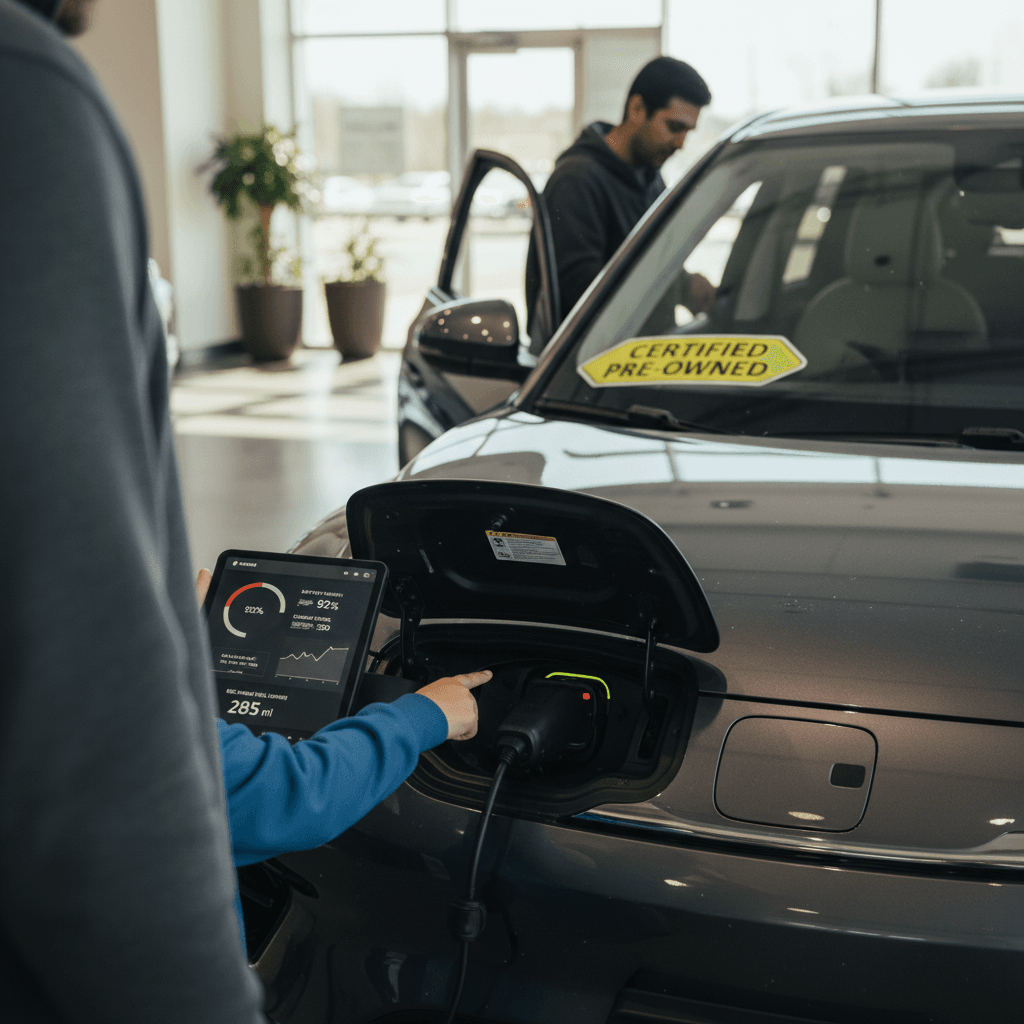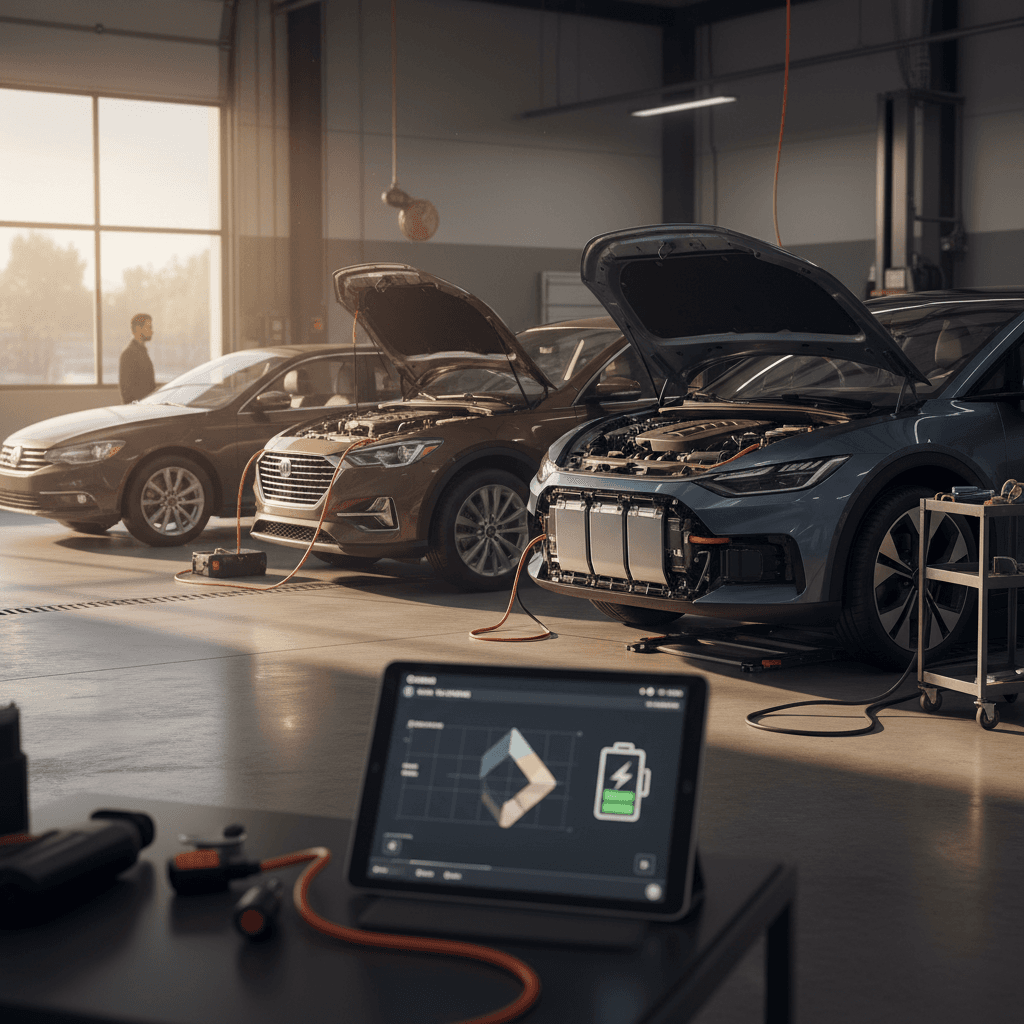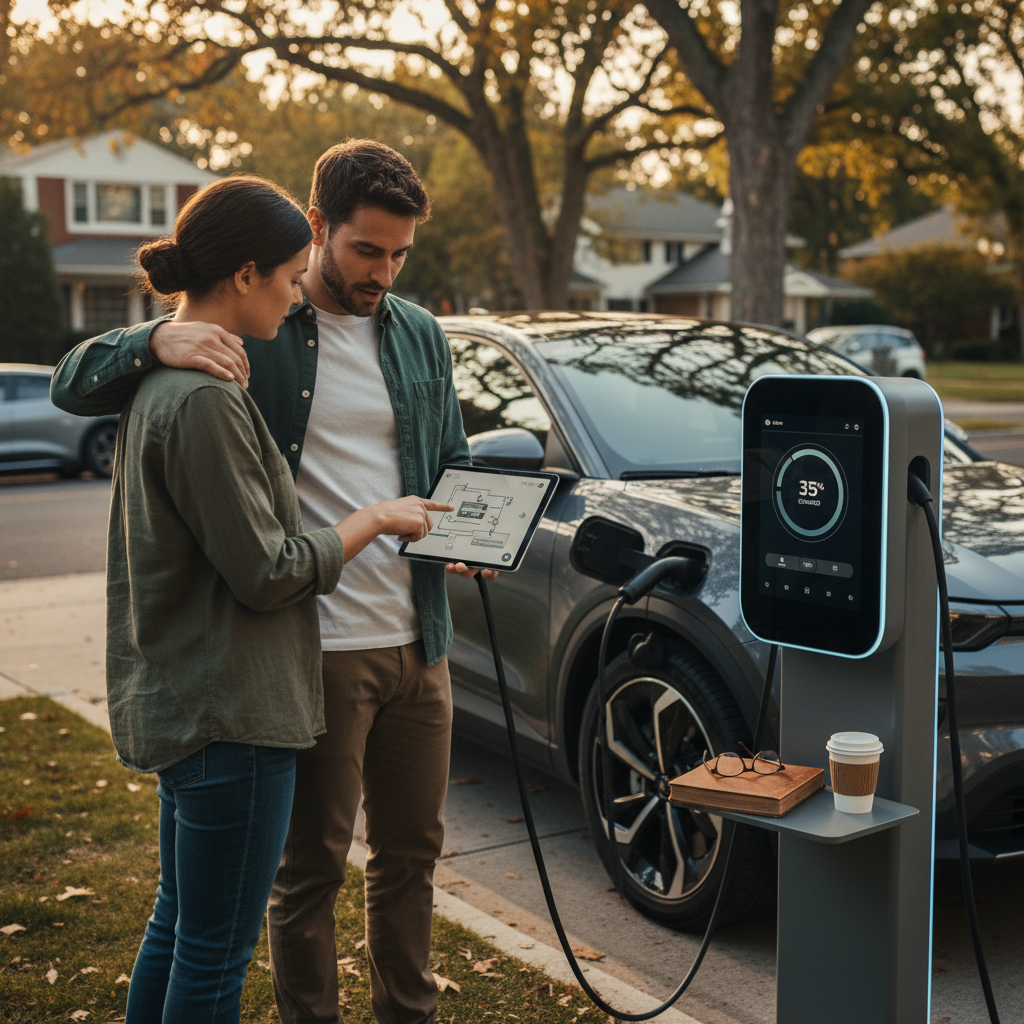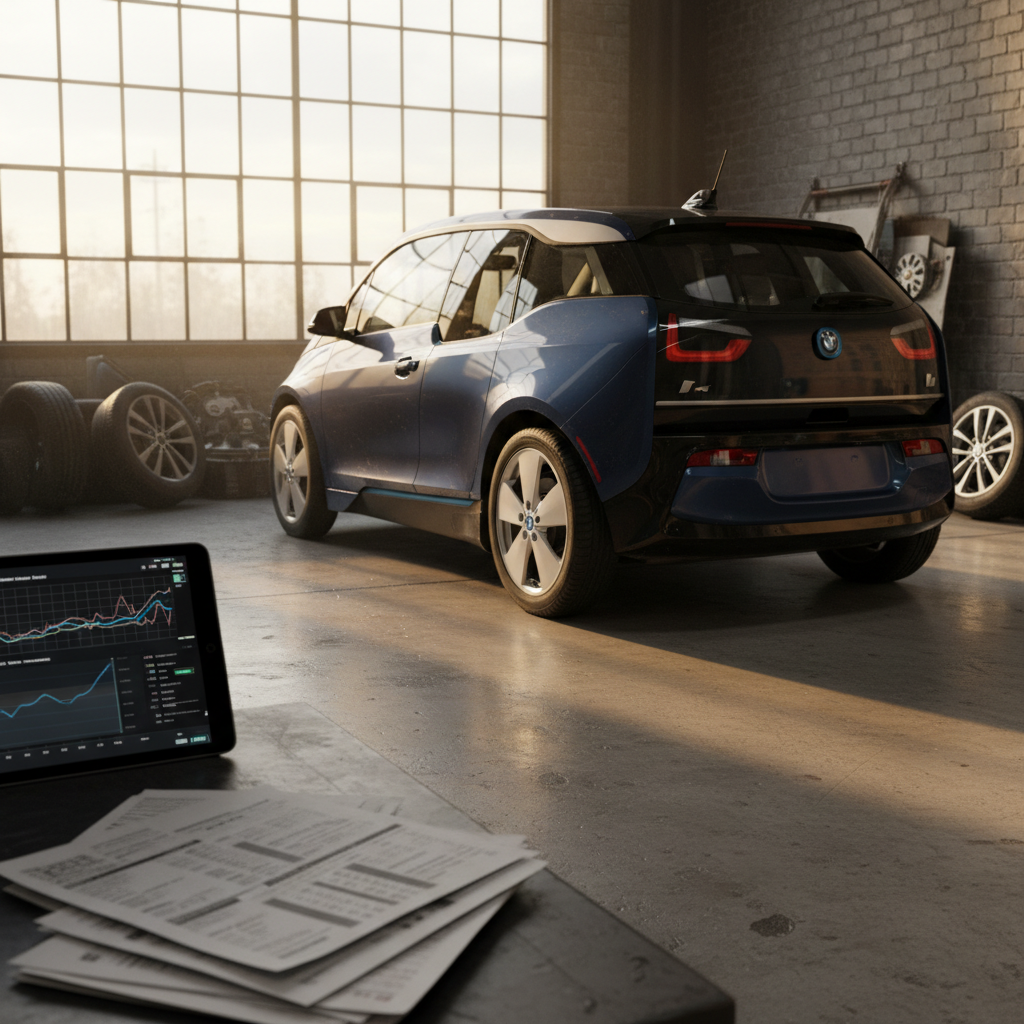If you’re shopping the most reliable used vehicles, you’re trying to do one thing: avoid buying someone else’s headaches. The good news is that today’s used cars, and especially certain brands and models, can easily deliver another decade of dependable service if you choose carefully. That applies to traditional gas models, hybrids, and the growing pool of used EVs.
Where this information comes from
Why reliability matters so much with used vehicles
When you buy new, you’re paying for two things: a factory warranty and the privilege of being the first owner. When you buy used, especially once a car is 4–8 years old, what you’re really buying is the remaining usable life of the vehicle. Reliability is the best proxy we have for how much life is left and how bumpy the road will be on the way there.
- Unreliable models chew through savings in surprise repairs and rental cars.
- Reliable models let you budget around routine maintenance instead of crisis spending.
- Some vehicles are cheap to buy because they’re trouble-prone; others are bargains because they simply aren’t trendy. Your job is to tell the difference.
Don’t chase the lowest price
Reliability: quick reality check
Most reliable used vehicle brands in 2025
Before we name specific models, it’s smart to understand which brands tend to build the most reliable used vehicles. In 2024 and 2025 reliability analyses, a familiar pattern emerges: Japanese brands dominate, with a few standout American and European nameplates mixed in.
Brand reliability snapshot
These brands repeatedly finish near the top of used‑vehicle reliability rankings for 5–10‑year‑old cars.
Lexus & Toyota
Why they’re safe bets:
- Conservative engineering and gradual updates.
- Excellent track record for engines, transmissions, and hybrids.
- Strong parts availability and service network.
Honda & Acura
What they do well:
- Long‑lasting drivetrains and tightly screwed‑together cabins.
- Compact cars and CR‑V/MDX‑type SUVs that regularly reach high mileage.
- Good resale values, because used buyers actively seek them out.
Mazda, Subaru, Buick
Quiet overachievers:
- Mazda: fun‑to‑drive, often near the top of reliability charts.
- Subaru: strong for all‑wheel‑drive wagons/SUVs if maintenance is consistent.
- Buick: one of the most dependable U.S. brands in recent J.D. Power data.
Brands where you should lean on data, not hype
Top reliable used models by vehicle type
Reliability isn’t one‑size‑fits‑all. The “most reliable used vehicles” for you depend on whether you need a commuter car, family SUV, truck, or EV. Below are consistently strong picks based on large data sets and real‑world owner experience. Think of these as starting points for your short list, not the final word.
Examples of reliable used models by segment
These vehicles show up again and again in 2024–2025 reliability and longevity studies.
| Segment | Model examples | Why they’re strong used bets |
|---|---|---|
| Subcompact & compact cars | Honda Fit, Toyota Corolla/Corolla Hybrid, Mazda3 | Simple, efficient drivetrains; outstanding track records; many examples under $20K depending on year and mileage. |
| Midsize sedans & hybrids | Toyota Camry, Toyota Prius/ Prius Prime, Hyundai Sonata | Proven engines and hybrid systems; comfortable highway manners; easy to service almost anywhere. |
| Small & compact SUVs | Honda CR-V, Toyota RAV4, Mazda CX-5, Subaru Forester | Family‑friendly size; generally excellent longevity if maintained; huge parts and service support. |
| Midsize & three-row SUVs | Toyota Highlander, Lexus RX, Honda Pilot, Mazda CX-9 | Stretch space for families while maintaining good reliability records; ideal for long‑term ownership. |
| Trucks | Toyota Tacoma, Toyota Tundra, Honda Ridgeline, Ford Ranger | Body‑on‑frame designs or proven platforms; widely regarded as capable of high mileage when maintained. |
| Entry luxury | Lexus ES, Acura RDX, BMW 5‑Series (carefully vetted) | Lexus and Acura especially combine comfort with strong reliability; European models demand stricter maintenance proof. |
| Hybrids | Toyota Prius, Corolla Hybrid, RAV4 Hybrid | Hybrid systems with long‑running, well‑documented durability; often outlast non‑hybrid counterparts with fewer major failures. |
| Mainstream EVs | Chevrolet Bolt EV, Kia Niro EV, Hyundai Kona Electric, Tesla Model 3 | Mature EV platforms with solid range; growing used supply and big price drops make them compelling if the battery checks out. |
Always evaluate the specific vehicle in front of you, condition and maintenance history matter as much as the badge on the grille.
Model years matter

How EV and hybrid reliability compares to gas vehicles
If you’re considering a used hybrid or EV, it’s worth understanding how they stack up against traditional gas vehicles on reliability. Recent surveys show a clear pattern: conventional hybrids are currently the reliability champs, gas‑only models are close behind, and EVs and plug‑in hybrids are improving but still report more issues on average.
Where hybrids shine
- Modern Toyota and Lexus hybrids routinely log high mileage with minimal major repairs.
- Hybrid systems from these brands are now in their fourth or fifth generation, bugs were largely worked out years ago.
- Because engines often run at lower stress and RPM, wear can be reduced compared with similar non‑hybrid models.
EVs: simple drivetrains, complex electronics
- EVs eliminate many wear items, no oil changes, spark plugs, or multi‑gear automatics.
- Most problems reported so far involve infotainment, body hardware, and new tech features rather than motors or battery packs.
- Early‑generation models and small‑volume brands are more likely to have software or quality glitches than proven, high‑volume EVs.
Battery reliability vs. brand reliability
Mileage, age, and remaining lifespan: what the data says
One of the most useful pieces of 2025 research looks at 5‑year‑old vehicles and estimates how many years of life they have left. A hatchback like the Honda Fit, for example, is projected to deliver more than 11 additional years of service on average, far better than the overall used‑car average of roughly 7.6 years. Several Toyotas, Hondas, Mazdas, and small crossovers from mainstream brands show similarly long remaining lifespans.
What really predicts how long a used car will last?
It’s more than just the odometer reading.
Maintenance history
If you can verify regular oil changes, fluid services, and recall work, you can feel much more confident buying even a higher‑mileage vehicle from a reliable brand.
Driving pattern
Highway miles are easier on a car than stop‑and‑go city driving. A 90,000‑mile commuter that lived on the interstate can be a better bet than a 60,000‑mile car used only for short trips.
Previous repairs
Some major repairs (like a fresh hybrid battery with paperwork) can actually improve a vehicle’s outlook. Others, like repeat transmission work, may be a red flag.
A practical target
Checklist: how to shop for a reliable used vehicle
Whether you’re eyeing a Corolla, a CR‑V, or a used Chevrolet Bolt EV, the process for finding a reliable example is largely the same. Use this checklist while you shop; it will save you from expensive surprises later.
Smart‑buyer checklist
1. Start with the right short list
Limit yourself to models with strong multi‑year reliability records. Cross‑check brand rankings and model‑level ratings for the specific years you’re shopping.
2. Check for recalls and service campaigns
Run the VIN through an official recall lookup and make sure required work has been completed. Open safety recalls should be addressed before or immediately after purchase.
3. Verify maintenance records
Ask for service histories, dealer printouts, and receipts. Oil changes, coolant and transmission services (for non‑EVs), and brake fluid changes are all clues to how the car was treated.
4. Get a professional inspection
A pre‑purchase inspection from a trusted shop is cheap insurance. For EVs, look for shops experienced with high‑voltage systems and battery diagnostics.
5. Don’t ignore cosmetic clues
Uneven tire wear, mismatched paint, or neglected interiors often signal deeper issues. A car that looks cared for usually was cared for mechanically, too.
6. Understand warranty coverage
On newer used vehicles, ask what’s left of the factory warranty and whether an extended warranty or certified pre‑owned (CPO) program is available and worthwhile for your situation.
7. Test drive like you own it
Drive at highway speeds, over bumps, and through tight turns. Test every button, seat adjustment, and window. Strange noises or warning lights are your cue to walk away or renegotiate.
8. For EVs: demand battery health data
Battery capacity is the new “compression test.” Ask for a battery health report instead of guessing based on range estimates alone.
How Recharged reduces the risk when you buy a used EV
Traditional used‑car shopping makes it hard to judge an EV’s true condition, especially the battery. That’s exactly the problem Recharged set out to solve. If a used EV is on our platform, it comes with a Recharged Score Report so you can see, in clear numbers, how healthy the vehicle really is before you sign anything.
What makes a used EV from Recharged different?
You’re not guessing, you’re working from data.
Verified battery health
Every vehicle gets Recharged’s battery diagnostics so you know how much usable capacity remains and how that compares to similar vehicles. That’s the heart of EV reliability.
Fair‑market pricing
Our pricing tools benchmark each EV against nationwide market data and condition so you can see whether you’re getting a fair deal instead of relying on hunches.
End‑to‑end EV support
EV specialists help you choose the right model, understand charging at home and on the road, and arrange financing, trade‑in, and nationwide delivery, all through a fully digital experience or at our Experience Center in Richmond, VA.
Why this matters for reliability
Frequently asked questions about the most reliable used vehicles
Your reliability questions, answered
Bottom line: building a short list you can trust
The most reliable used vehicles in 2025 share three traits: they come from brands with a long history of dependable engineering, they live in model years with solid reliability scores, and they’ve been cared for by previous owners. Start with proven nameplates, Corolla, Camry, CR‑V, RAV4, Prius, Highlander, Tacoma, and their peers, then vet individual vehicles with service records and a professional inspection.
If your next vehicle is going to be electric, the same logic applies, but you’ll also want a clear view of battery health. That’s where buying through Recharged can give you a real edge: every used EV includes a Recharged Score Report, EV‑savvy guidance, and a smooth, digital buying experience. Do that homework up front, and your next used vehicle, gas, hybrid, or EV, should feel like a smart long‑term partner, not a rolling gamble.



